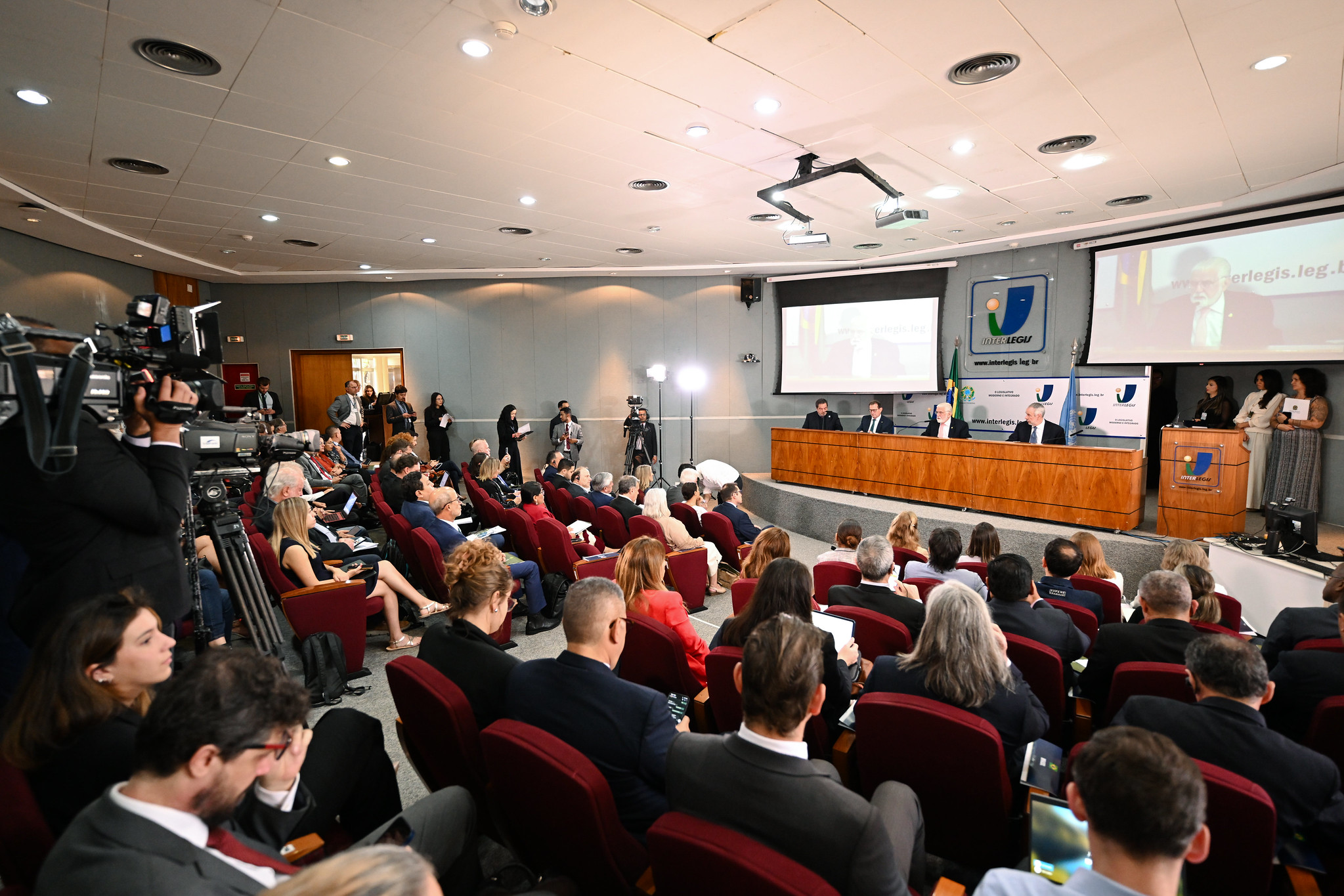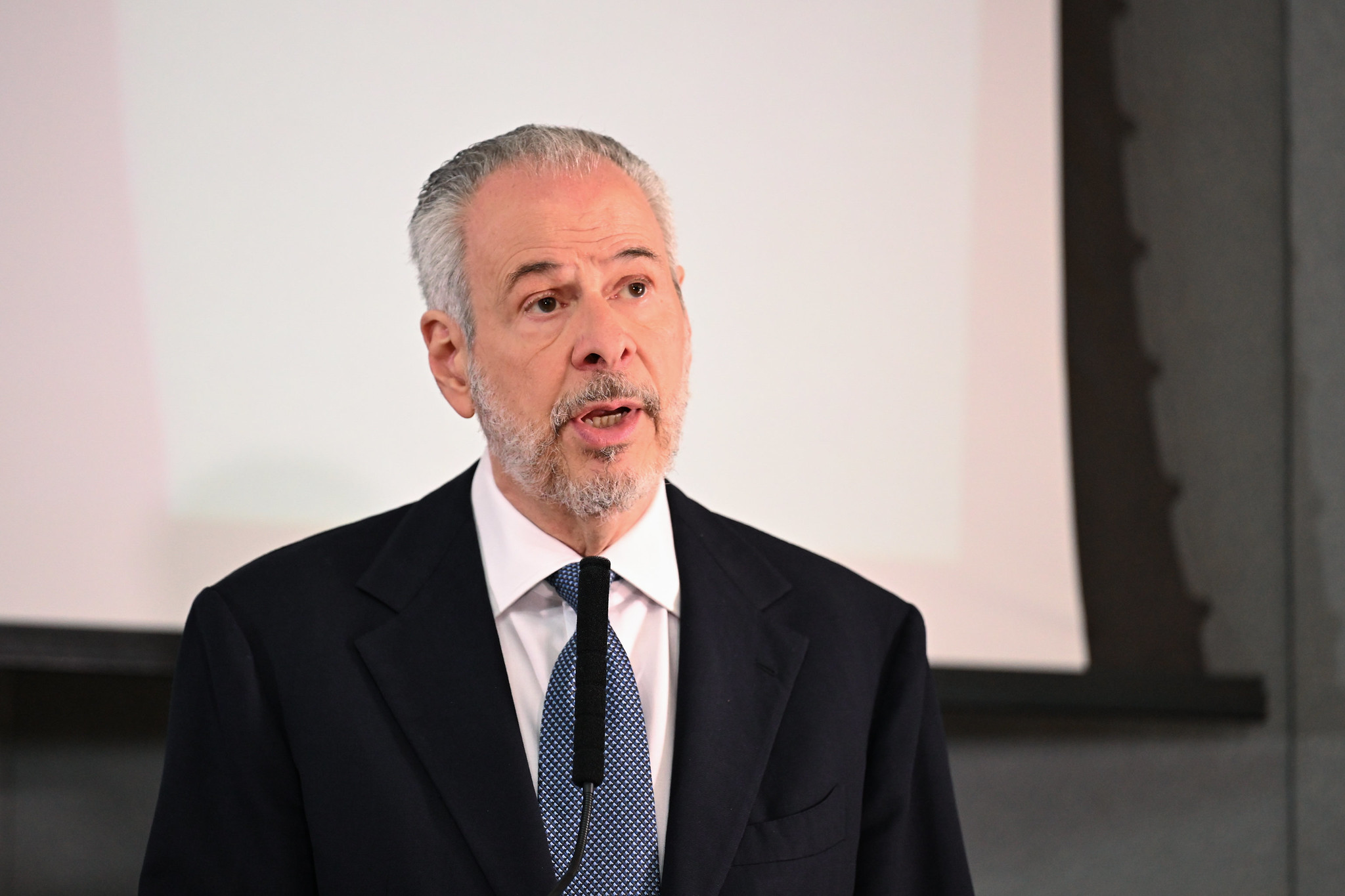Latin America can lead on global climate justice, says André Corrêa do Lago
COP30 President advocates for a key parliamentary role in climate action and highlights just transition and adaptation as central themes of the UN Conference in Belém

By Leandro Molina / COP30 Brasil
On Wednesday (August 6), during the II Parliamentary Summit on Climate Change and Just Transition of Latin America and the Caribbean at the National Congress in Brasília, COP30 President Ambassador André Corrêa do Lago reiterated the importance of parliamentary engagement in climate discussions.
In his speech, the ambassador highlighted that the just transition will be one of the central themes of the UN Climate Conference in Belém, and argued that climate action should be seen as an opportunity for development, not an obstacle. "If it is not a just transition, voters in Europe will vote against rising energy prices. In developing countries, eliminating job-creating activities could be seen negatively. Therefore, we cannot allow the climate agenda to be seen as socially detrimental. It must be linked to growth, job creation, and improving people's lives," he stated.
Mr. Corrêa do Lago presented three priorities for the Brazilian government for COP30: strengthening multilateralism, making the conference's outcomes accessible to society, and expanding climate solutions—such as adaptation—beyond formal negotiations. “Multilateralism is international democracy. We want the decisions made at COP30 to be understood by the public, the private sector, and local governments, demonstrating their real impact,” he explained.
The ambassador also detailed the innovative structure of COP30, which will include an Action Agenda parallel to the official negotiations, with more than 350 meetings involving subnational governments, businesses, academia, and civil society. “This agenda will give the COP extraordinary dynamism, showing that solutions already exist for many of the climate challenges. Parliamentarians have an essential role to play in this process,” he said.
Additionally, the COP30 president mentioned the four dialogue circles created by the Brazilian presidency to prepare for the conference: former COP leaders, Indigenous Peoples and traditional communities, finance ministers, and a Global Ethical Stocktake with religious leaders and intellectuals. “We need a collective effort to address the climate crisis, which is moving faster than expected,” he warned.
Upon receiving the Letter from Latin American and Caribbean Parliamentarians, a document proposing legislative climate action, the ambassador reaffirmed the legacy of international negotiations since the 1992 Earth Summit in Rio and the urgency of implementation. “We have 30 years of accumulated climate legislation. Now is the time to act. COP30 will be the moment to adjust the instruments and accelerate implementation,” he concluded, inviting those present to participate in the conference in Belém, “in the heart of the Amazônia.”

Ambassador Corrêa do Lago concluded by stating that efforts are underway to ensure all countries can be present in Belém. According to him, the Special Secretariat for COP30 (SECOP) has already secured several rooms at affordable prices for representatives from low-income nations and small island states in vulnerable situations to make this possible. “We are talking about more than 70 countries that receive very low per diem rates and still find participation expensive. But we are working on it, and we will make sure everyone can attend,” Mr. Corrêa do Lago affirmed.
Brazilian Senator Jaques Wagner (PT–BA) and Javier Medina Vásquez of Colombia, Deputy Executive Secretary of the Economic Commission for Latin America and the Caribbean (ECLAC), also emphasized the importance of parliamentary engagement in climate action during the summit. Both highlighted COP30 as a historic opportunity for the region to lead the global climate justice agenda.
Mr. Jaques Wagner stated that Latin America and the Caribbean, despite being among the most affected by the climate crisis, possess the solutions to tackle it. He pointed to Brasil’s recent progress, such as a 50% reduction in Amazônia deforestation in two years and the submission of an ambitious Nationally Determined Contribution (NDC), aiming to cut 67% of emissions by 2035. The Brazilian senator also called for greater financial commitment from wealthy nations, noting that while the global target is USD 300 billion annually, the actual need reaches USD 1.3 trillion by 2035.
Mr. Javier Medina Vásquez praised the leadership of Brasil and the region in shaping multilateral agreements, from the 1992 Earth Summit in Rio to the recent Escazú Agreement—a regional treaty signed in 2018 by Latin American and Caribbean governments in Escazú, Costa Rica. “The Parliamentary Observatory on Climate Change is an example of how legislators can turn international commitments into national laws,” he noted. He also emphasized the importance of COP30 as a landmark for regional integration and the promotion of green economies capable of generating jobs and reducing inequalities.
Both speeches converged in calling for a renewed multilateralism, with stronger participation from countries of the Global South. The summit, organized by the Parliamentary Observatory in partnership with ECLAC, continues through Thursday (August 7), with discussions on climate finance, environmental justice, and regional integration, reaffirming the role of legislators in building a sustainable legacy for the conference in Belém.
